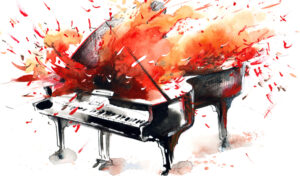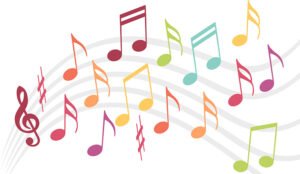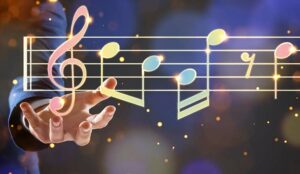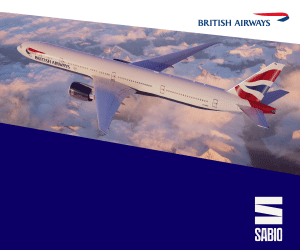We receive many questions about music on hold – and in particular what licences are required.We find that many people may be over-paying for their licences. For example, if you play Vivaldi you do not require a Performing Rights Licence, but you do require a Public Performance Licence. Confused? Read on…
Generally speaking there are two licences required for a call centre to play music on hold. This
article refers to the licences required in the UK. It is likely that the same situation applies in other countries, but it will be wise to check.
Firstly there is the Public Performance Licence (PPL).
This covers the royalties which are paid to the performers for the music (for example to the artist or to the orchestra who made the recording).
The current cost of this licence is £151.34 for the first 15 lines and then £52 for every subsequent 15 lines. A licence is required for every switchboard or call centre location.
The second licence that you require is the Performing Rights Society Licence (PRS). This covers the royalties which are paid to the composer of the music and the lyrics (for example the song writer).
The current cost of this licence is an annual standing charge of 61.36 plus 3.02 for every telephone line.
The table below provides a rough idea of the costs of the two licences for a typical call centre.
| Agents | PPL Licence |
PRS Licence |
Total |
|---|---|---|---|
| 50 | 298 | 243 | 540 |
| 100 | 449 | 424 | 873 |
| 200 | 752 | 786 | 1,538 |
| 500 | 1,661 | 1,873 | 3,535 |
| 1000 | 3,176 | 3,685 | 6,862 |
(The figures presume a ratio of 1.2 incoming lines per agent)
The nice thing about these licences is that once you have purchased the licences you can pretty well play any CD available from the major record companies. You can just buy a CD from your local record store – pop it into the music on hold player and away you go.
Is a licence always required?
However there are a couple of specific instances where a licence may not be required. We have checked with PPL and PRS about the licence situation.
Royalty Free Music
There has been an explosion of royalty free music in the past few years. This is music where the performers choose to not join the PPL scheme and instead sell their music at a higher price. Most royalty free music suppliers, for example Q- Music or AK Music choose to stay as a part of the PRS scheme – for their contemporary music.
According to Paul Hardcastle of Q-Music, “Call centres tend to go more for contemporary easy listening music. It can’t be too in your face. It’ll just be something that will pass the time waiting to be talked to”. Q-Music recommend contemporary easy listening for music on hold (for example their “A Place in the Sun” at a cost of $49.
With most royalty free music you would still require a PRS licence.
Classical Music on Hold
Some classical music does not require a licence as it is out of copyright.
Copyright on written music – for example the score – expires 70 years after the composer has died. If the written copyright has expired then you do not require a PRS licence.
So as long as a composer has died before 1946 then you will not require a PRS licence. To help you find if you require a PRS licence simply look up the composer on our table.
| Composer | Died | PRS licence required? |
|---|---|---|
| Elgar | 1934 | No |
| Sibelius | 1957 | Yes |
| Vaughan Williams | 1958 | Yes |
| Shostakovich | 1975 | Yes |
| Benjamin Britten | 1976 | Yes |
You can now use music on hold by both Elgar (Enigma Variations or the Cello Concerto) and Holst (Planets Suite) without the need for a PRS licence. However, since the sound recording was made in the past 50 years you will probably need a PPL licence.
Public Performance Licence
A public performance licence is required on nearly all recordings from the major record companies, recorded in the past 50 years.
There are two main exceptions.
- Recordings made prior to 1966
- Copyright on a performance lasts for a period of 50 years from the date of recording, or from the date of release of the recording, whichever was earlier. In practice this covers most commercially available recordings.
If you were to scour the second-hand record shops and find an old 78 record – for example the 1935 recording of Vivaldi’s Four Seasons by the Berlin State Opera Orchestra – you will probably be able to use this music without a PPL or a PRS licence.
According to David Harmsworth of PPL, “It is not enough just to look at the year in which the recording was made. If a recording is released within 50 years after being recorded, the copyright runs for 50 years from the end of the year of release, not the year of recording. So if your Berlin State Opera Orchestra recording was made in 1935 but not released until 1965, the sound recording copyright would survive until the end of 2015 – meaning that a PPL licence would still be required. If however the recording was released the same year it was made – 1935 – then no PPL licence would be needed.”
Royalty Free Classical Recordings
PPL licences only cover those sound recordings in which it owns or controls the sound recording copyright. So if a royalty free provider like Q Music owns the sound recording copyright in its recordings and has not joined PPL, a PPL licence will not be required. A performance licence is usually included as part of the service they provide.
Many Royalty Free companies also stock a range of classical music recordings from old composers, which are free of both PRS and PPL licences. Examples would be “Music From the Past: Medieval to Baroque” available from by AKM Music at 29 or Mozart’s – “Overture to the Marriage of Figaro” or Brahms – “Final Movement Violin Concerto”, both available from Q-Music at $39.99.
Which licence is required?
To help simplify a rather confusing situation we have put together this table that will help you select the licence that you require.
| Music | PPL Licence Required? |
PRS Licence required? |
|---|---|---|
| Modern pop music, e.g. Elton John, Dido | Yes | Yes |
| Recent recording of Classic Music by modern composer, e.g. Benjamin Britten | Yes | Yes |
| Recent recording of Classic Music written by an composer who died before 1935, e.g. Mozart, Vivaldi | Yes | No |
| Old recording of Classic Music written by an composer who died before 1945, e.g. Mozart, Vivaldi and was recorded and released before 1965 |
No | No |
| Contemporary Royalty Free recording, e.g. “A place in the sun” from Q-Music |
No | Yes |
| Royalty Free recording of Classic Music written by an composer who died before 1945, e.g. Mozart from Q-Music | No | No |
Be careful not to cheat
You may look at getting music on hold licences as a bit of a luxury. But be very careful. Both PPL and PRS have strong methods of enforcement.
They use a variety of research methods to identify businesses that are using music on hold and require a PPL and PRS licence, including the use of field agents, telephone campaigns, press searches and even the occasional tip-off. They also often ask about music on hold on our other licence application forms, in case a business applying for a different type of licence also requires one for music on hold.
In terms of enforcement, using music on hold without the requisite licence is copyright infringement. Where a business refuses to take out a music on hold licence, the remedies available to PPL and PRS would include a court injunction to prevent the business from continuing to use music on hold, as well as an award of damages (the level of which is assessed
by the court).
Conclusion
We would always suggest that you carefully select music that is appropriate and calming to your particular callers. This would typically require both PPL and PRS licences.
If you want to avoid paying any PPL or PRS licences the easiest way would be to purchase copyright free classical music from a Royalty Free library.
Examples would be Mozart’s Overture to the Marriage of Figaro or Brahms’ Final Movement Violin Concerto, both available from Q-Music at $39.99.
As ever we would suggest that you buy music based on whether it is appropriate to your audience – rather than just being cheap.
Author: Jonty Pearce
Published On: 6th Dec 2005 - Last modified: 23rd Mar 2020
Read more about - Hints and Tips
















Please can you let me know where I can get a quote and purchase a licence for music on hold?
thanks
Fiona
Fiona
The first step would be tpo contact the PRS http://www.prsformusic.com and the PPL http://www.ppluk.com/
very educating article.never knew that there is so much licensing for the music played on hold.please let me know is this the reason that there is a AVG HOLD TIME parameter in our agent performance report?
Ok what about this senario…
I work for a medium sized company, but i also write music in my spare time as well as digitally compose… I then write and record various pieces specifically for my company.
I do not have copyright protection apart from intellectual copyright but give my consent for the company to use my work within their on hold system.
why should my company need a licence to play my music to which I have given consent. ?
Regards Gy Antony
I work for a charity organization called CREATE. can you tell me the best way to find out about playing music in our shop, and for music on hold when on telephone.
Cheers
Linda
We are a modern music band and we want to know if we are allowed to do street busting, or if we need a licence?